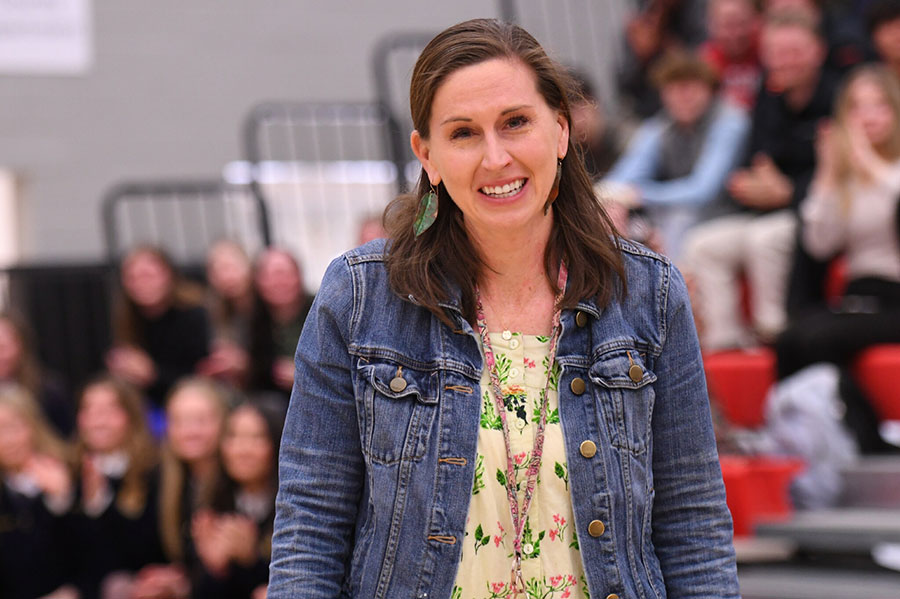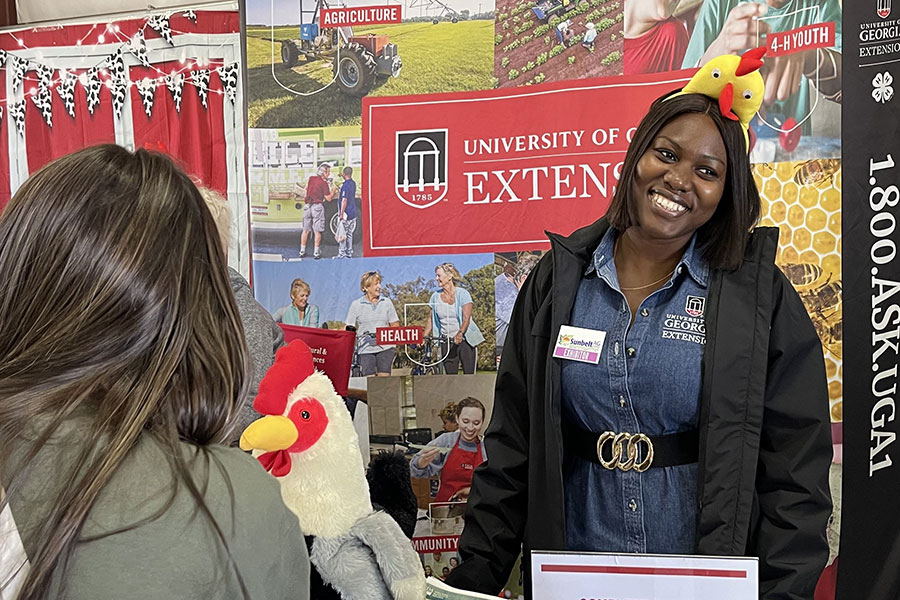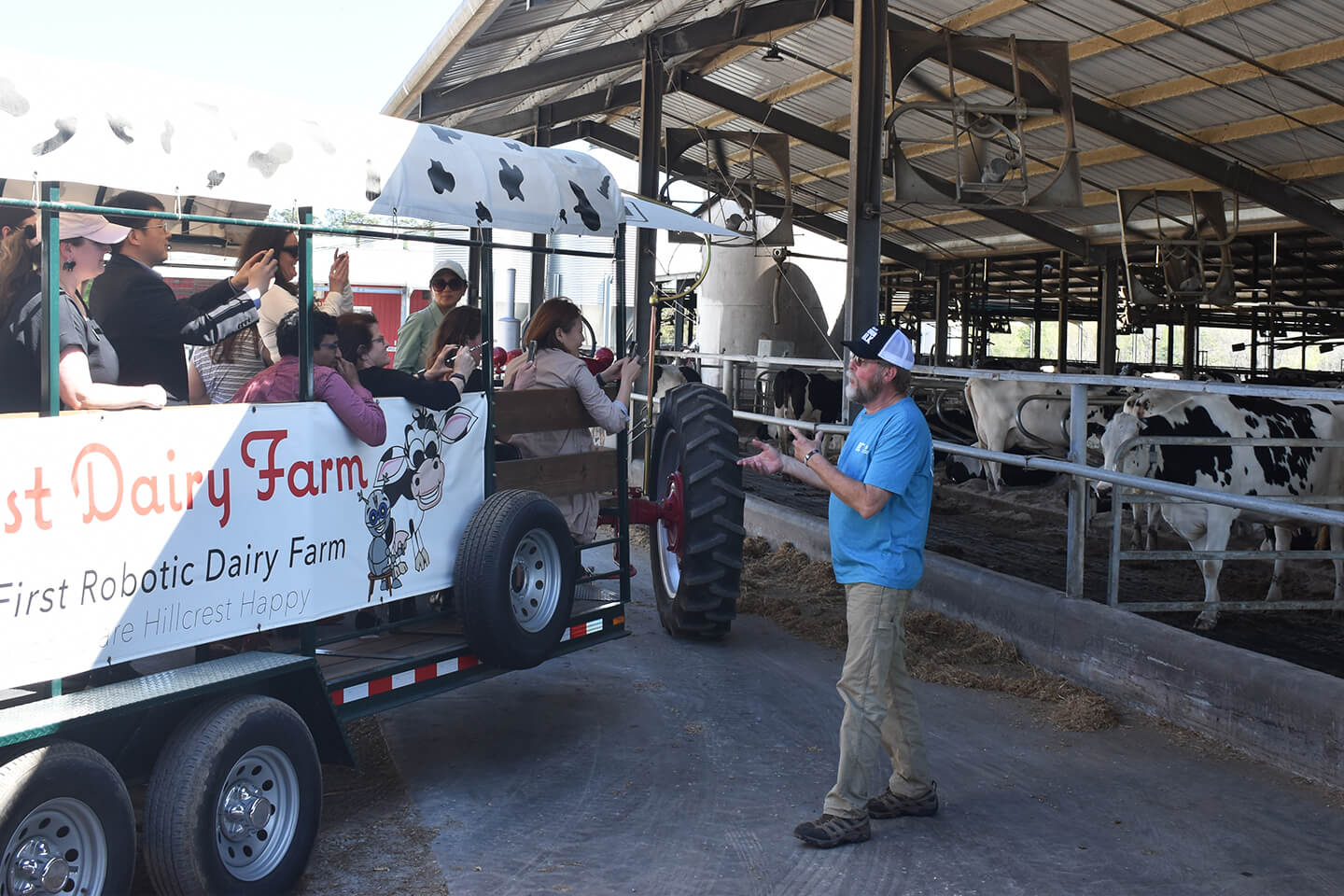 CAES News
CAES News
40 Under 40 Class of 2025
The University of Georgia has named its 40 Under 40 Class of 2025, recognizing a group of young alumni based on their personal, professional and philanthropic achievements. Honorees from the College of Agricultural and Environmental Sciences include Caroline Lewallen (BSA '11 - Agricultural Education), Charles Orgbon (BSA '18 - Environmental Economics and Management), Colby Ruiz (BSA '15 - Biological Science), Caroline Stelling (BSA '11 - Environmental Economics and Management) and Tyson Strickland (BSA '11, DVM '16 - Animal Science).









